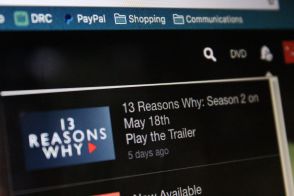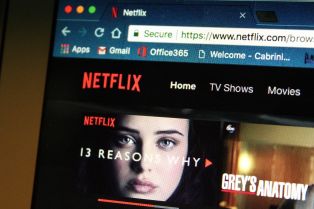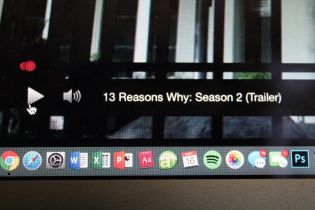Mental health has always been a part of my life, for as long as I can remember. Before I even knew the meaning of the words “mental illness,” my anxiety and depression remained constant in in everything that I did. Just recently, at the age of 19, I have come to understand a fragment of what it means to have a neurological disorder.

That is why when I heard about the show “13 Reasons Why” I was so excited. According to the Netflix, “’13 Reasons Why’ was released on March 31, 2017.” The series was released during my second semester as a freshman in college and it was a point in which the strain on my mental health was at an all-time high.
There was so much I wanted to know about mental illnesses. I knew this show was not going to be like a therapy session and I was not going to end the show and know how to “cure” my mental illnesses; however, having a show I could possibly relate to especially on an issue so close to me made me really excited.
Not only for myself, but for the impact it could have on my generation.
When all thirteen episodes of the first season were released, I quickly began binge watching. As I continued to watch, I became more and more confused on what this show was actually about. I was completely caught off guard and honestly, I was hurt.
I wasn’t expecting for this show to be a mirror of my life and my experience with mental illnesses. I also didn’t expect to not be able to relate to most of the plot that was supposed to highlight the unspoken challenges of teens with mental illnesses.
I thought to myself, “I am a teen and I do have a mental illness so what am I missing here ?”
According to Psychology Today, “season one of the series did not have input from mental health professionals or suicide prevention experts.”
This is where I began to feel everything connecting. My confusion for the show grew into animosity. This show almost made me invalidate my own experience. It made me feel as though maybe what I felt was not wrong.

I already know what you are thinking, “you based your definition of mental illnesses off of one show. Didn’t you know they are different for everybody?”
No, I didn’t base my definition of mental illnesses off one show.
Yes, I did know that everyone’s experience is different.
However, we all know how powerful the media is and this almost did affect my view of my own mental illnesses. This lead me to do more research on the show to figure out what it was missing. That led to multiple websites like Rolling Stone, New York Times and Inverse.com, explaining that the production team behind the show didn’t put the time and effort into proper research before releasing the show for public consumption .
This, unfortunately, is not what most people are going to do.
Think of all the young viewers of this show who may have mental illnesses. They could have been feeling the exact same way I did. Younger people are so impressionable, and being led in the wrong direction can have horrible consequences.
The only aspect of the shows first season I could identify with was when the main character felt as though suicide was her only way out. Then I stop to think about the after effects the show portrayed. It was almost as if she was a sacrificial lamb, and the act of her taking her own life somehow made the people who bullied her better people.

According to Nylon.com, “Creating suicide to one single factor, like bullying is a gross simplification of the myriad of reasons people wind up killing themselves. People who struggle with depression may have suicidal impulses regardless of the external circumstances of their lives.”
For me, this show showcased how catastrophic bullying can be in high school, not mental illnesses. It did not speak to the self-sabotage mental illnesses comes with. It was outside forces that kept pushing her closer and closer to breaking.
Mental health is such a complex topic because everyone has a different experience. That is why, in my opinion, it hurt to find out the production team for season one did not do their research or even consult any mental health experts before releasing the series. Instead, they portrayed a very skewed version of what it means to have a mental illness in high school.
My hope for season two of “13 Reasons Why” is that they take the time to expand their knowledge on this subject. The show has lost me as a viewer, however, for the younger viewers who are going through a time in their lives where a show like this could really help them, I hope the show becomes more accurate and inclusive.


